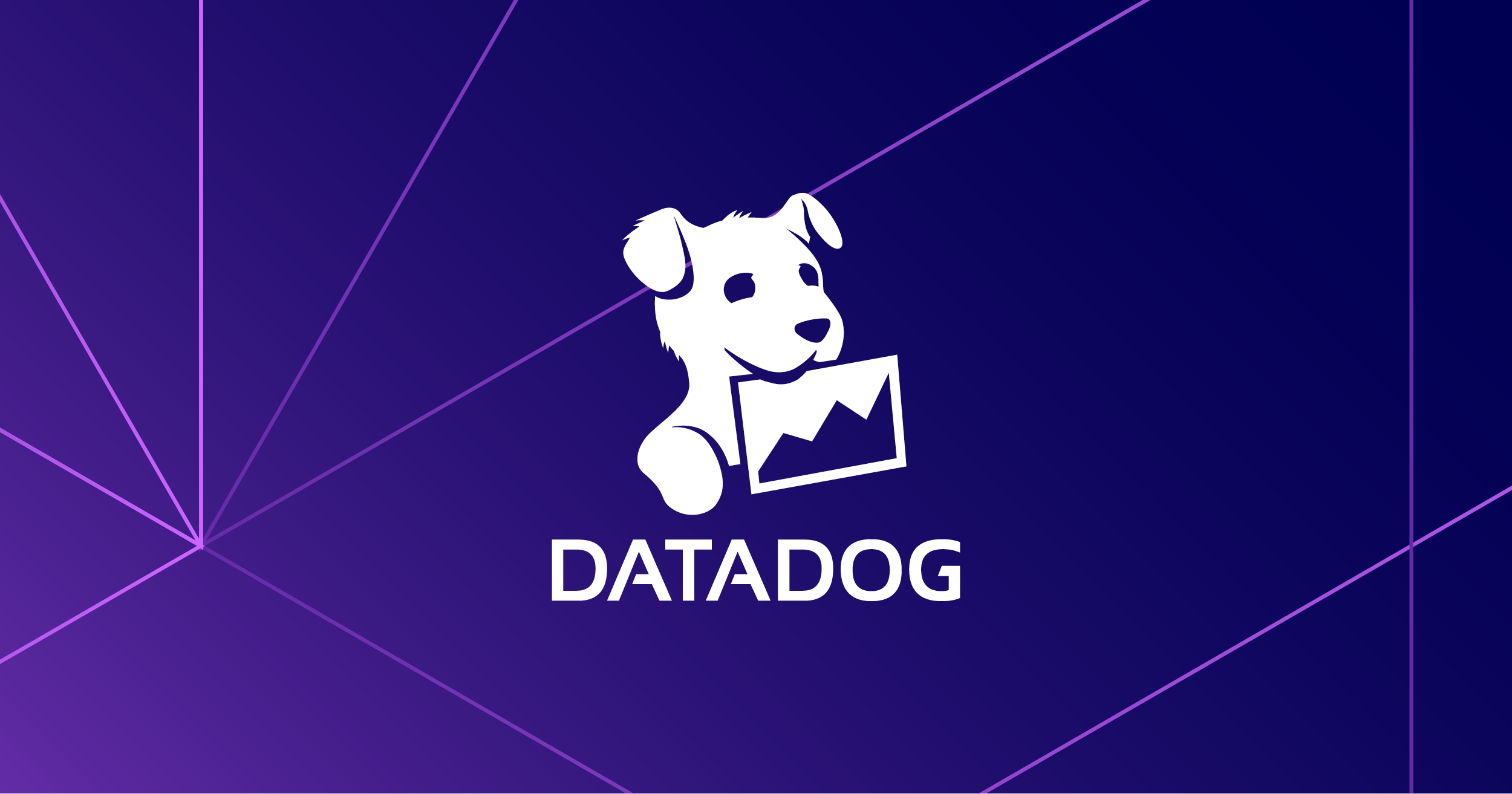Datadog Mastery: Logs

Welcome to the Datadog Log Management Mastery series—a deep dive into the tools, strategies, and best practices that turn noisy log lines into actionable insights. Whether you’re just starting out or optimizing large-scale log pipelines, these tutorials and guides are designed to help you stay in control, reduce costs, and get real value from your logs.
L01 - Introduction to Log Management
Make your logs work for you—not against your budget.
🧠 Philosophy
- Structure logs upfront to scale usage across teams
- Dynamically align cost with value
- Search with ease. Visualize with confidence.
- Turn log lines into beautiful charts.
🎬 Video Topics:
- Why “pay for the value” matters in log management
- Datadog’s log architecture: indexes, pipelines, and retention
- Common patterns to balance control, cost, and flexibility
L02 - Enabling Log Collection and Integrations
Collect what matters, where it matters.
🔧 Covered Topics:
- Collecting logs from file systems, containers, apps, and browsers
- Configuring common sources: FluentD, Syslog, Vector
- Overview of agent-based and agentless collection
- Enabling automated pipelines via integrations
💡 Pro Tip: Standardize collection early—future you will thank you.
L03 - Exploring and Analyzing Logs
Query less. Understand more.
🎬 Video:
- Part 1 – Using Vector to generate logs for testing
- Part 2 (coming soon) – Deep dive into search and analytics
🛠 What You’ll Learn:
- Facets: filter and slice without query language
- Analytics: visualize trends with built-in tools
- Patterns: identify anomalies without grep gymnastics
part 1
part 2 (upcoming)
L04.1 - Structuring Logs with Pipelines
🎬 Video Topics:
- Pipeline basics: order, structure, RBAC principles
- Using the pipeline library for faster onboarding
- Why proper structure leads to cost-efficient observability
🧩 Key Concepts:
- Grok parsers, processors, standard attributes
- Organizing pipelines to handle multiple teams
L04.2 - Grok Parsing Deep Dive
🧠 From raw to readable—clean logs drive clean insights.
🎬 Video Topics:
- Writing robust patterns using wildcards, arrays, and helper rules
- Parsing structured logs: JSON, CSV, multiline
- Pro tips: datadog.pipelines:false, auto-parsers, multiple rules
L04.3 - Useful Log Processors
🚀 Get more from your logs without rewriting apps.
🛠 Examples Covered:
- Categorization and enrichment processors
- Vlookup: turn values into context
- IP geolocation and URL parsing
- Pipeline scanners and applying standard attributes
L05 - Logging Without Limits™ Philosophy
Control what’s indexed. Retain what matters. Spend only where it counts.
📖 Blog: Log Management Policies
🎬 Video Topics:
- Indexing strategies: what to store, what to drop
- Metric extraction and log-to-metrics flows
- Exclusion filters and archive strategies
Still want more guidance, here is an additional blog post from Datadog to help you ask questions about your logs. https://www.datadoghq.com/blog/log-management-policies/
L05.2 - LwL Practical Guide
📖 Docs: Logging Without Limits™
🎬 Video Topics:
- Lifecycle approach to log filtering
- Quotas and safeguards to stay within budget
- Proactive exclusion: debug logs, untagged logs, percent-based filters

L05.3 - Tracking Log Usage and Flex Logs
🧾 New: Flex Logs Overview
A middle ground between indexing and archiving.
🎬 Video Topics:
- Dashboards to track index usage
- Factors affecting cost
- Rehydrating archived logs on-demand
- Attribute-based exclusions
L05.4 - LwL First Steps
- Indexes : error for 15 days, info for 3 days, debug excluded, dev retention to 3 days
- Index quotas
- Exclusion filters
- debug filters
- untagged filters
- % exclusion filters
L06 - Security in your Logs
Protect what’s sensitive before it becomes a liability.
🎬 Video Topics:
- Scrubbing at source vs. aggregator vs. Datadog
- Using the Sensitive Data Scanner
- Alerting on PII leakage
- Example patterns: masking API keys, email addresses
L07 - Logs RBAC
📽️ Video: Coming soon
Lock down access with purpose-driven roles.
L07 - Troubleshooting
📽️ Video: Coming soon
When logs go missing or look wrong, here’s where to look first.
🛠 Tips include:
- Checking agent status
- Validating log pipeline ordering
- Troubleshooting exclusion filters and parsing failures
Bonus resources
- 🧾 Reference Tables for Parsing
- ⚙️ Observability Pipelines Setup
- 📚 Join the Dataiker Blog and YouTube for more





